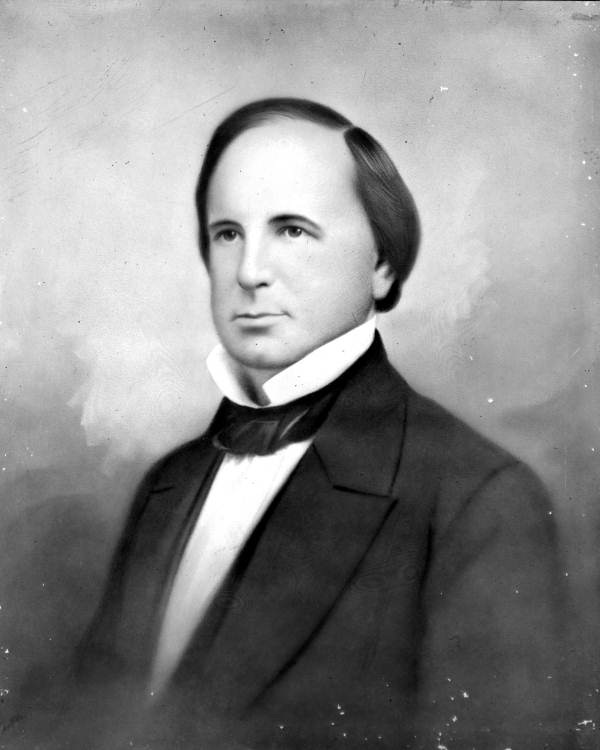Walker Anderson on:
[Wikipedia]
[Google]
[Amazon]
 Walker Anderson (July 18, 1801 – January 18, 1857) was a Florida lawyer and Democratic politician who served on the Florida Supreme Court from 1851 to 1853.
He was born in
Walker Anderson (July 18, 1801 – January 18, 1857) was a Florida lawyer and Democratic politician who served on the Florida Supreme Court from 1851 to 1853.
He was born in
A History of the Florida Supreme Court
, ''University of Miami Law Review'' (1981), p. 1044-1046.
Netlbrary
Online. April 23, 2008.
Portrait at Florida Supreme Court Portrait Gallery
1801 births 1857 deaths Florida lawyers Chief Justices of the Florida Supreme Court 19th-century American judges 19th-century American lawyers {{Florida-state-judge-stub
 Walker Anderson (July 18, 1801 – January 18, 1857) was a Florida lawyer and Democratic politician who served on the Florida Supreme Court from 1851 to 1853.
He was born in
Walker Anderson (July 18, 1801 – January 18, 1857) was a Florida lawyer and Democratic politician who served on the Florida Supreme Court from 1851 to 1853.
He was born in Petersburg, Virginia
Petersburg is an independent city (United States), independent city in the Commonwealth (U.S. state), Commonwealth of Virginia in the United States. As of the 2020 United States Census, 2020 census, the population was 33,458. The Bureau of Econ ...
, on July 18, 1801. He studied law at Raleigh, North Carolina
Raleigh (; ) is the capital city of the state of North Carolina and the seat of Wake County in the United States. It is the second-most populous city in North Carolina, after Charlotte. Raleigh is the tenth-most populous city in the Southe ...
and married Phoebe Hawks. He practiced law and was a professor of English and of history at the University of North Carolina
The University of North Carolina is the multi-campus public university system for the state of North Carolina. Overseeing the state's 16 public universities and the NC School of Science and Mathematics, it is commonly referred to as the UNC Sy ...
from 1831 - 1832. In 1835, he moved to Pensacola
Pensacola () is the westernmost city in the Florida Panhandle, and the county seat and only incorporated city of Escambia County, Florida, United States. As of the 2020 United States census, the population was 54,312. Pensacola is the principal ci ...
during the Second Seminole War. He was unsuccessful in a number of business ventures, and opened a law practice. He was a charter member of the Florida Democratic Party.
Escambia County elected him a delegate to the 1838 St. Joseph constitutional convention. As a delegate, he supported anti bank policies and statehood, and opposed division of the territory. In 1840, he was elected to the Territorial
A territory is an area of land, sea, or space, particularly belonging or connected to a country, person, or animal.
In international politics, a territory is usually either the total area from which a state may extract power resources or a ...
House of Representatives. In May 1841, President John Tyler appointed him United States attorney for West Florida. He prosecuted abolitionist Jonathan Walker in 1844. He became a Territorial Senator in 1845. His bid for election to the Florida State Senate
The Florida Senate is the upper house of the Florida Legislature, the state legislature of the U.S. state of Florida, the Florida House of Representatives being the lower house. Article III, Section 1 of the Constitution of Florida, adopted in ...
was not successful. In 1847 was appointed West Florida Commissioner of Public Schools. He returned to the Florida Legislature in 1850, where he supported separation of the Florida Supreme Court and popular election of justices. He was chosen in 1851 by the Legislature as Chief Justice to the Florida Supreme Court. In 1853, returned to his legal practice in Pensacola. He died in Pensacola on January 18, 1857.
Anderson's grandson, Evelyn C. Maxwell, also served as a justice of the Florida Supreme Court.Joseph A. Boyd Jr., Randall Reder,A History of the Florida Supreme Court
, ''University of Miami Law Review'' (1981), p. 1044-1046.
References
*Manley, Walter W., Brown, E. Canter. and Rise, Eric W. ''The Supreme Court of Florida and Its Predecessor Courts, 1821-1917.'' pp 140 – 145. University Press of Florida. Gainesville, Florida. 1997. eBook . . aNetlbrary
Online. April 23, 2008.
External links
Portrait at Florida Supreme Court Portrait Gallery
1801 births 1857 deaths Florida lawyers Chief Justices of the Florida Supreme Court 19th-century American judges 19th-century American lawyers {{Florida-state-judge-stub